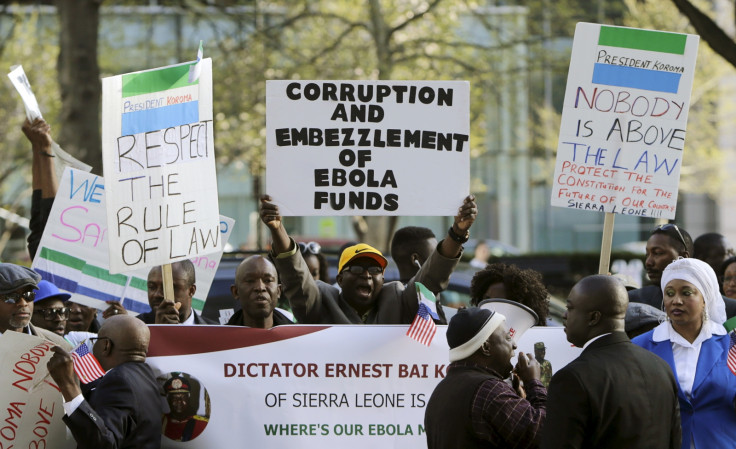Ebola: CDC warns of sexual transmission of virus as WHO admits to failings

The Centers for Disease Control and Prevention has issued fresh guidelines urging Ebola survivors to either abstain from sex or use condoms for more than three months as previously recommended.
The latest concerns follow evidence of a Liberian survivor who is suspected to have transmitted the virus to his partner months after recovery, and a pregnant woman in Sierra Leone who died.
The virus was detected in his semen 175 days after he first developed symptoms, which is 74 days longer than seen before.
Partial sequencing of the virus found in the woman matched that of the virus from her boyfriend and his potential Ebola contacts.
Sexual transmission of Ebola so long after infection has never been confirmed and is assumed to be rare.
The CDC plans to study whether the man's sample contains infectious virus and not just harmless fragments of genetic material. But the Liberian has since refused to cooperate.
Reports of a Sierra Leone man being subjected to humiliation and coercions in attempts to procure semen samples have been denied by authorities involved and WHO. The survivor, whose pregnant wife succumbed days after his recovery, had claimed to have become impotent after Ebola.
Given the latest evidence in the Liberian survivor's case, the CDC joined the WHO and Liberia in issuing the guidelines on safe sex.
There are an estimated 15,000 Ebola survivors in West Africa.
Despite the challenges involved in collecting semen samples, all survivors should be offered the chance to know whether their body fluids still contain traces of Ebola, said a Liberian doctor who is an Ebola survivor.
WHO's Bruce Aylward said the agency was exploring the feasibility of a programme to offer free testing to check for prolonged virulence.
New infections have come down to around three dozen a week across the three affected countries.
WHO admits failings
Meanwhile, the WHO has admitted to serious failings in its handling of the Ebola crisis and said it was learning "lessons in humility, fragility and solidarity".
The statement on its website acknowledges its slow and insufficient response (cited by aid groups), poor coordination with partners, shortcomings in risk communications and confusion of roles and responsibilities.
It may be recalled that Medecins Sans Frontieres (Doctors Without Borders, MSF) recently accused the WHO of having delayed calling Ebola a public health emergency of international concern (PHEIC) and hampering its ability to contain the epidemic.
The agency had in its internal deliberations cited concerns that the PHEIC could anger the African countries involved, hurt their economies, or interfere with the Muslim pilgrimage to Mecca.
"We have learned lessons of humility. We have seen that old diseases in new contexts consistently spring new surprises," said the statement from WHO Director-General Margaret Chan and the deputy director-general and regional directors.
The health agency also spelt out its plans for reforms. It was in January that 34 countries on the WHO's executive board adopted a resolution seeking major reforms of the WHO.
These include the establishment of a 1,000-strong emergency reserve force, a contingency fund and a rapid-response force, as well as a stronger command structure at the WHO and stronger international health rules to make sure every country is up to standard for disease preparedness.
© Copyright IBTimes 2025. All rights reserved.





















